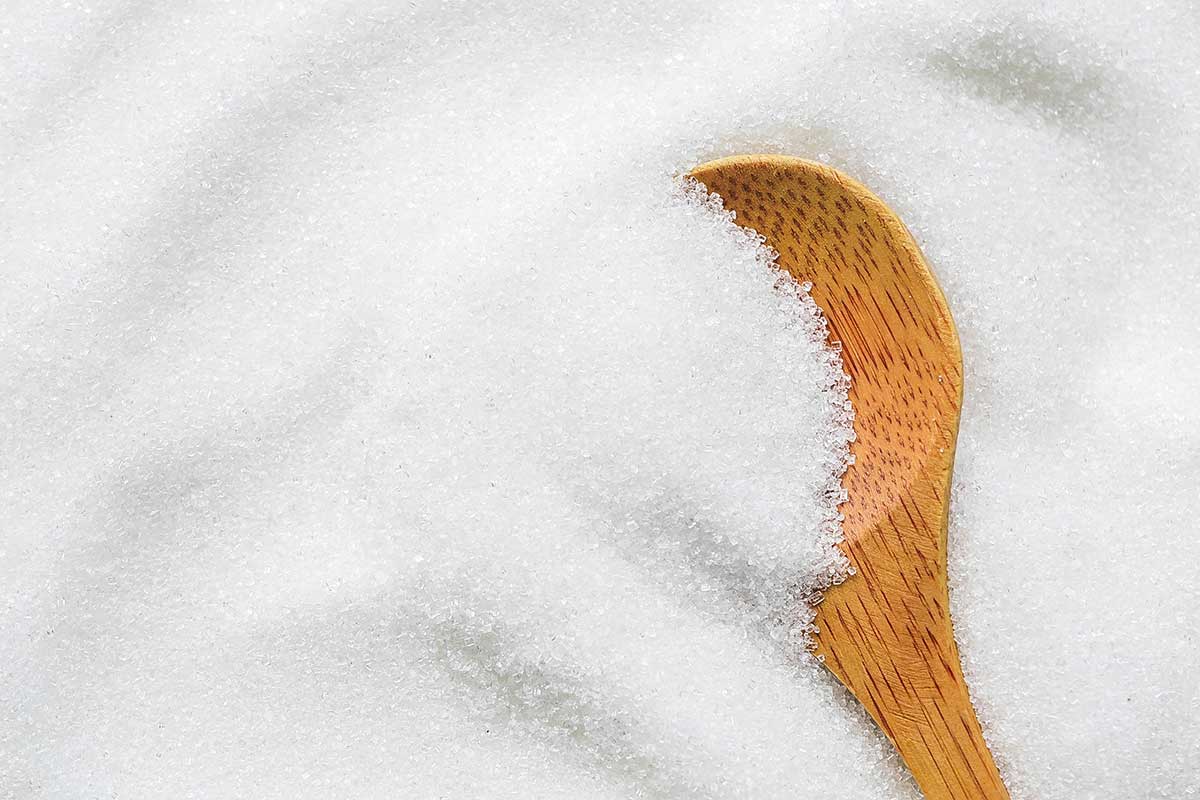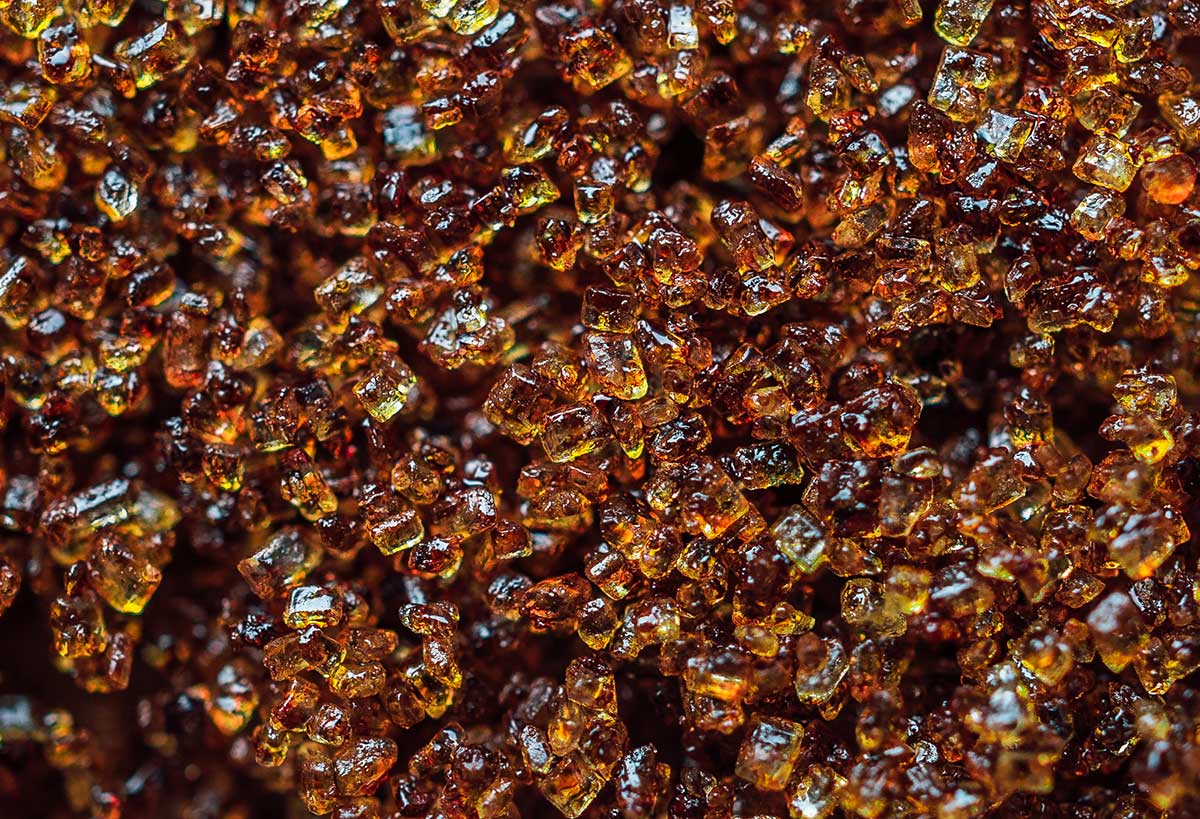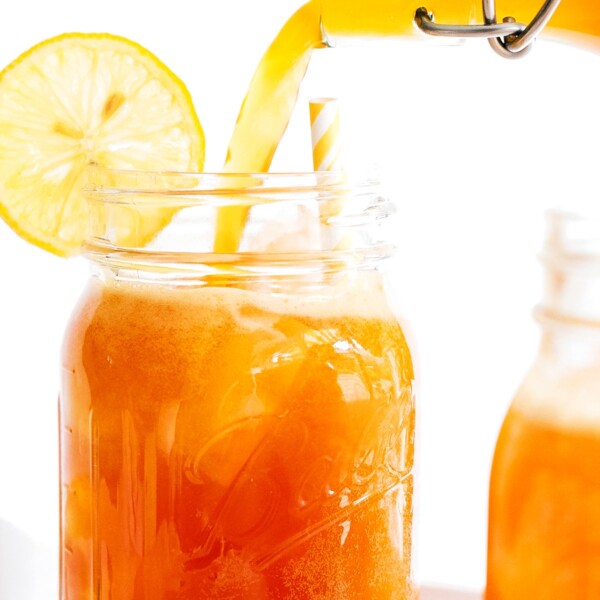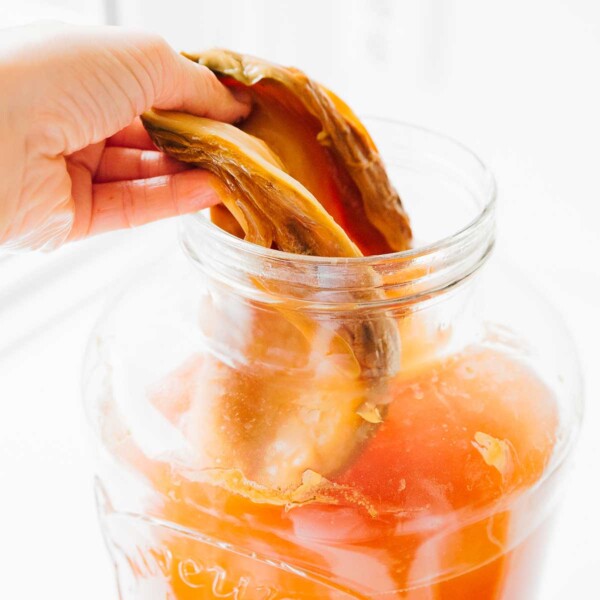Which sugars should you use for making homemade kombucha? And which sweeteners should you avoid? Breaking down the best sugar for kombucha here!

It can be tempting to cut out the sugar when brewing kombucha. I mean, do we really need to add that much sugar? (Answer, yes) (but here’s how to make keto kombucha, if that’s your thing).
Sugar is one of the most important ingredients in your fermentation, and choosing the right sugar is just as important (along with choosing the right tea for kombucha and best water for brewing).
Sugar plays the integral role of feeding the yeast. The yeast in the SCOBY eat the sugar, transforming it into ethanol. The bacteria feed on this ethanol, turning it into acidity and giving kombucha its distinctively sour taste.
So which sugar is best for brewing kombucha?

The best sugars for brewing kombucha
While there is a long list of tea you can play around with in kombucha, the list of potential sugars is a bit shorter. As always, feel free to experiment with different sugars, but keep in mind that your SCOBY and fermentation could be affected.
White Table Sugar: This is simply pure white sugar, made from either cane or beets. It’s our favorite sugar for brewing kombucha for its predictability and consistency.
Organic Cane Juice Crystals: For the folks who prefer organic sugars, this unbleached sugar does the job, while also having trace amounts of minerals (unlike the white table sugar, which has none).
Raw or Whole Cane Sugar: These sugars are recommended with reservation. They are less refined and can be hard on your SCOBY, but many brewers like using them.
“Any reports on use of date sugar in the initial ferment??”

Sweeteners to avoid when making kombucha
Brown Sugar: With added molasses, brown sugar produces inconsistent batches and can harm the SCOBY over time.
Honey: This natural sugar can contain botulism bacteria (especially raw honey), which could create a dangerous brew.
Agave, Maple, Coconut, Palm Sugar: These plant extracts can be hard on the SCOBY while also influencing the flavor of the kombucha.
Sugar Substitutes: Sugar-free alternatives like stevia, xylitol, or aspartame should not be used, as they don’t provide the energy needed for the yeasts and bacteria to thrive. If you want to create a lower sugar kombucha, simply let the first fermentation run for a longer period of time, giving the yeast more time to eat up the sugar.
Powdered Sugar: Otherwise known as icing sugar, this powdery sweetener contains cornstarch.




Kombucha may be a problem being that I have Diabetes type 2
I may need to be sure all of the sugar is digested before I digest it
Hi Dan! Here is our guide on making your kombucha lower carb 🙂
A 100% newbie. Any suggestions?
Start here! 🙂
I’m wondering about Monk fruit sweetener in lieu of the sugar.
Any comments?
Artificial sweeteners won’t work in F1 because the sugar is what feeds the bacteria and yeast! You can add it in F2 if you want it a bit sweeter 🙂
How about corn sugar. I have some that I use for corbonating my home brew beer.
I haven’t tried so I can’t say for sure!
Hi Sarah,
One last question.
It’s cold here in Alberta, Canada and the room that consistently stays the warmest in the main floor bathroom.
Can I grow my scoby in the bathroom?
Thanks, Jerry
Hi Jerry! I think that would be okay, but if it’s very humid for extended periods it could lead to some issues potentially with mold. But I think it’s worth a shot!
Hi Sarah,
Can I use organic cane sugar to make my initial scoby?
Thanks,
Jerry
Yep that should work!
Hi, probably too late to comment, but I’ve been making kombucha for a long time now and have always used raw sugar. So I read with interest what you said about raw sugar. I have had no problems using it, maybe my scobys are used to it….
I’ve been brewing kombucha for several years now and always used regular table sugar for primary and secondary ferments. I’m wondering what you know about powdered dextrose? I’m getting ready to bottle for secondary with ginger
I haven’t tried it before, I think it could work for F2 though!
Molasses
My wife is intolerant of any kind of processed sugars (cane, table, corn syrup, dextrose, etc) and so they make her really scik, even in very small amounts, so I need another option for the first ferment. I am currently trying maple syrup, but wondered if you could give me any idea of how to make the most of less optimal sugars?
Oh no! That’s a really tough question honestly. Could you try using cane sugar but then letting it ferment for longer? The sugar is really there for the bacteria and yeast to consume – if you ferment it for longer there won’t be much (if any) sugar left.
After a ferment there really shouldn’t be any sugar left as it’s only there to fuel the fermentation process, not sweeten it. Sweetening is usually done with flavoring as a final step. I used Demerara sugar to create my first SCOBY from Assam Gold tea and a store bought ginger flavored raw kombucha and it worked perfectly, I have a really nice SCOBY developing with no infections, it’s really working nicely. I haven’t tried anything less refined than Demerara sugar which is slightly less refined than raw cane sugar which is a tan color with larger crystals than white sugar, so I wouldn’t know if brown sugar or Muscovado sugar (which I have plenty of) works or not. You can try Demerara or raw sugar annd see how it goes and ferment it longer to make sure the SCOBY uses every bit of sugar it can find. Then you can try the same thing for your secondary ferment for carbonation once it’s bottled if that’s your thing.